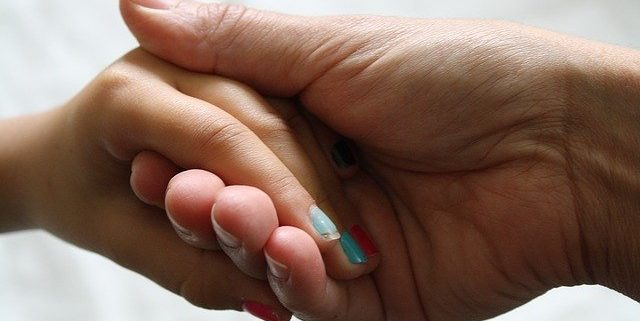How to Cope with the Sudden Death of a Child
 Every parent never imagines burying a child. It goes against the natural order of life. Unfortunately, life is not always fair and unexpected things happen. Parents already get sick to their stomach with worry when their kids are sick and suffering. Factoring death into the picture is just incomprehensible. The sudden loss of your child is the most gut-wrenching experience, to say the least. This tragedy is every parent’s nightmare.
Every parent never imagines burying a child. It goes against the natural order of life. Unfortunately, life is not always fair and unexpected things happen. Parents already get sick to their stomach with worry when their kids are sick and suffering. Factoring death into the picture is just incomprehensible. The sudden loss of your child is the most gut-wrenching experience, to say the least. This tragedy is every parent’s nightmare.
When you look at your innocent child with such a vibrant future, you don’t think of planning a funeral with cremation. You’re thinking of Disneyland, play dates, life ambitions, hopes, dreams, and aspirations. Healing from the death of a loved one is already difficult. Make that the death of a child, and it is paralyzing. Is it even possible to move on and recover from this kind of devastating loss? Consider the following steps below to help you and the rest of your family cope:
Stick Together as a Family
Everyone manages their grief differently, but one thing is certain, you need your family now more than ever. Death is a thief that doesn’t just steal your child’s future, but it robs you and your whole family of experiences with an innocent human being who can never be replaced. You are not alone in your loss. Your spouse and your children feel the grief, too. Lean into one another for support. Your precious departed child would never want to see his or her family falling apart. Your beloved baby will not be able to rest in peace this way. The best way to show your deceased child that you truly care is by loving each other more. Your family is your little angel’s last memory of a safe haven, so protect it. Consider doing a family project with your child’s name, like giving back to the community, fundraising, or establishing a scholarship. Your baby will want to see a happy family, where he or she lives on in all of your hearts.
Consider Grief Counseling
Don’t be afraid to ask for professional help. Losing a child is mind-numbing, so you need counseling to aid you in processing your grief. If talking to a psychiatrist or psychologist is off-putting for you, you can go to your pastor, priest, or anyone in your faith to help you make sense of this loss. Moreover, you have to prioritize counseling as a family. Your other children are also certainly having a hard time losing their sibling. Their psyche is so much more fragile than adults. They don’t have the maturity nor experience to process this situation. Their grades may slip or they could begin hanging out with the wrong crowd. Thus, it is also essential to seek help as a family, so you can heal as one.
Try to Go Back to Your Routines
When all the funeral poems and songs are over, then what? It may seem callous to suggest getting back to a routine after the demise of your child. However, sudden death is very disruptive and the only way to get back a semblance of normalcy is to do the things that you were doing before. There is security in familiarity. Something is comforting about doing a routine. For younger children, going back to school, doing homework, seeing friends, and doing their extra-curricular will make them feel safe. Apart from the sense of security, it also helps build their identity, which may have been shattered by the loss of a sibling. Everyone understands that life without your child will never be the same again. You and your family will most likely establish a new normal. But if you don’t start this process by doing your everyday tasks, finding this new comfort zone post-death will not happen. Take the first step to healing and start living life again.
Prioritize Your Health and Wellness
To get back on the right track, you have to take care of your health. This is one of those areas that suffer when there is sudden death. All those sleepless nights, emotional turmoil, inability to eat, stress, and anxiety just make your health suffer. Blood pressure increases, palpitations occur, insomnia creeps in, and more. If you have other children, you owe it to them to be healthy. They already lost a sibling, don’t make them lose a parent, too. To help you recover, start eating healthy food with your family. Exercise also helps manage stress, depression, and anxiety. When you exercise, your body releases endorphins. Some refer to this as the happy hormone. When you’re physically well, it so much easier to be more mentally sound, too.
Find a Support Group
It is crucial to find a support group of other parents who have experienced the same situation. They are the best people to give you comfort and words of wisdom. They wherein your shoes before and feel your pain. They can also motivate you because you will see through their example that there is indeed still hope and life after a traumatic loss.
Bottom Line
Coping with the death of your child is not easy. You will need to move together as a family to make it through the rough times. Rely on one another and seek help from others, so you can manage your emotions. Most of all, you must remember that your departed child doesn’t want to be the reason for your perpetual sadness. The best way to honor your child is to live your best life.







